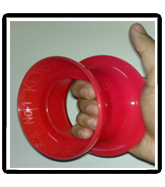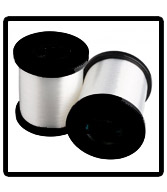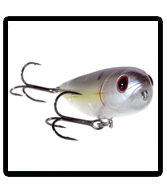| Click
Products
|
| Fishing
Equipment |
| |
| Fishing
Floats |
|
| Plastic Fishing floats are used by fisherman to tie on fishing nets so that the nets can float on water and also alerts oncoming ships about the net in the water. It is made in different sizes of 5” & 6” & 8” & 12” & 16”. It is available in two colours orange and blue. |
|
|
| |
| |
| Fishing
Spools |
This is a new innovative way of angling fishing. Don’t want to buy expensive Rods and Reels! Well here is the solution. Fishing Spool provides the benefit similar to fishing with rods and reels. During the catch of a big fish the load of the fish is on the line which is on the spinning reel. Similarly while using fishing spool the load is on the spool. Generally people catching the fish with the help of line and hooks only so, in that position while a person catches a big fish there are chances of hurting his hand and fingers while holding on and dragging the catch. But while using the fishing spool his hands are completely safe and it is convenient to drag the fish. This results in effective and a much cost saving fishing experience. Another benefit derived from the fishing spool is that you can pitch the fishing line at your desired angle as one end of the spool is open to throw the line. |
|
 |
|
| |
| |
| Fishing
Hooks |
|
|
A
fish hook is a device for catching
fish either by impaling them in the mouth or,
more rarely, by snagging the body of the fish.
Fish hooks have been employed for centuries
by fishermen to catch fresh fish and saltwater fish. Fish hooks are normally attached to
some form of line or lure device which connects
the caught fish to the fisherman. Fish hooks are manufactured
for a range of purposes from general fishing
to extremely limited and specialized applications.
Fish hooks are designed to hold various types
of artificial, processed, dead or live baits (bait
fishing); to act as the foundation for artificial
representations of fish prey (fly fishing);
or to be attached to or integrated into other
devices that represent fish prey (lure fishing). |
|
|
| |
| |
| Nylon Fishing
Line |
A
fishing line is a cord used & made for angling.
Important parameters of a fishing line are its
length, material, and weight (thicker lines
are more visible to fish). Factors that may
determine what line an angler chooses for a
given fishing environment include breaking strength,
knot strength, UV resistance, castability, limpness,
stretch, abrasion resistance, and visibility.
Range:0.
40 - 4. 00 mm. / resins: pa 6, pa 6/66 co-polymer
. |
|
 |
|
| |
| |
| Fishing
Rods & Reels |
|
|
A
fishing rod or a fishing pole is a long, flexible
length of glass fiber composite, carbon fiber
composite, classically, bamboo, used to catch
fish. In contrast with subsistence and commercial
fishing, which usually involve nets, fishing
rods are typically used in the sports of angling
and competitive casting.
At its simplest, a fishing rod is a simple stick
or pole with a line ending in a hook (formerly
known as an angle, hence the term angling).
To entice fish baiter lures may be added. To
aid in playing a fish more line, stowed on a
reel in common. Fishing rods vary in flexibility
and length, varying between 24 inches and 20
feet. The longer the rod, the greater the mechanical
advantage in casting. |
|
|
|
| |
| Fishing
Lure |
A
fishing lure is an object attached to the end
of a fishing line which is designed to resemble
and move like the prey of a fish. The purpose
of the lure is to use movement, vibration, and
colour to catch the fish's attention so it bites
the hook. Lures are equipped with one or more
single, double, or triple hooks that are used
to hook fish when they attack the lure.
Lures are usually used with a fishing rod and
fishing reel. When a lure is used for casting,
it is continually cast out and retrieved, the
retrieve making the lure swim or produce a popping
action. A skilled angler can explore many possible
hiding places for fish through lure casting
such as under logs and on flats. |
|
 |
|
|